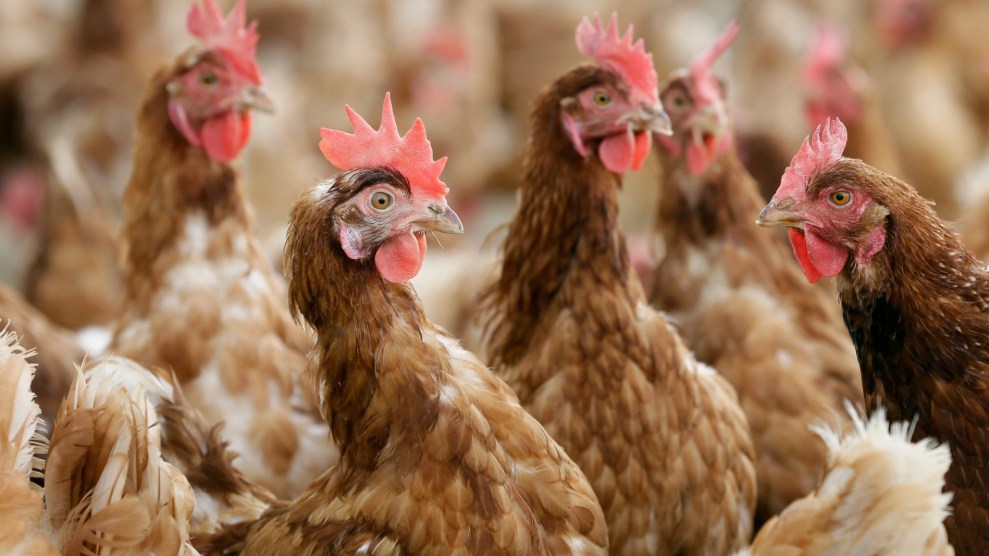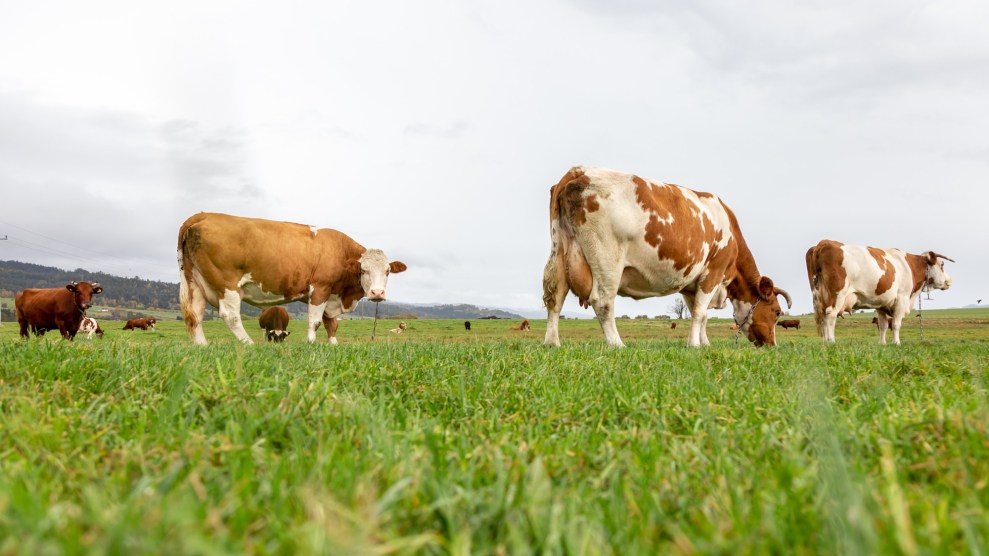Over on our environment blog, Chris Mooney posts an excerpt from an interview in which Neil deGrasse Tyson defends GMO foods:
“Practically every food you buy in a store for consumption by humans is genetically modified food,” asserts Tyson. “There are no wild, seedless watermelons. There’s no wild cows…You list all the fruit, and all the vegetables, and ask yourself, is there a wild counterpart to this? If there is, it’s not as large, it’s not as sweet, it’s not as juicy, and it has way more seeds in it. We have systematically genetically modified all the foods, the vegetables and animals that we have eaten ever since we cultivated them. It’s called artificial selection.”
This is a very common defense of GMO foods, but I’ve always found it to be the weakest, least compelling argument possible. It’s so weak, in fact, that I always wonder if people who make it are even operating in good faith.
It’s true that we’ve been breeding new and better strains of plants and animals forever. But this isn’t a defense of GMO. On the contrary, it’s precisely the point that GMO critics make. We have about 10,000 years of evidence that traditional breeding methods are basically safe. That’s why anyone can do it and it remains virtually unregulated. We have no such guarantee with artificial methods of recombinant DNA. Both the technique itself and its possible risks are completely different, and Tyson surely knows this. If he truly believed what he said, he’d be in favor of removing all regulation of GMO foods and allowing anyone to experiment with it. Why not, after all, if it’s really as safe as Gregor Mendel cross-breeding pea plants?
As it happens, I mostly agree with Tyson’s main point. Although I have issues surrounding the way GMO seeds are distributed and legally protected, the question of whether GMO foods are safe for human consumption seems reasonably well settled. The technology is new enough, and our testing is still short-term enough, that I would continue to err on the side of caution when it comes to approving GMO foods. Still, GMO breeds created under our current regulatory regime are basically safe to eat, and I think that lefty critics of GMO foods should stop cherry picking the evidence to scare people into thinking otherwise.
(Please send all hate mail to Tom Philpott. He can select just the juiciest ones to send along to me.)
But even with that said, we shouldn’t pretend that millennia of creating enhanced and hybrid breeds tells us anything very useful about the safety of cutting-edge laboratory DNA splicing techniques. It really doesn’t.















